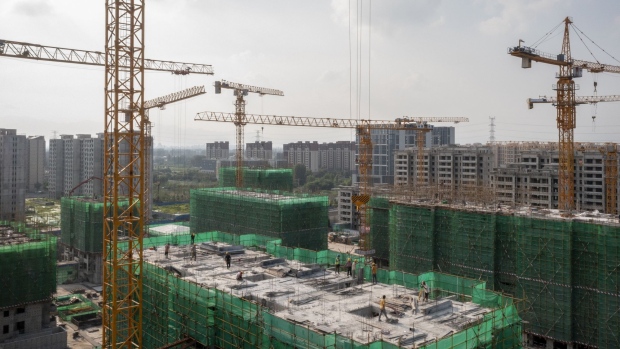Aug 15, 2022
Hong Kong Watchdog Investigates Evergrande Over Deal Audits
, Bloomberg News

(Bloomberg) -- Hong Kong’s Financial Reporting Council is stepping up its investigation of audits at China Evergrande Group, the second review of the embattled developer’s books in nine months.
The watchdog is looking into Evergrande’s accounts and the audits of some transactions at the company and its subsidiary Evergrande Property Services Group Ltd., according to a statement Monday.
The inspections add to the challenges facing the Shenzhen-based company at the center of China’s real estate crisis. The world’s most-indebted developer defaulted in December and fell short of delivering a promised restructuring plan last month, fueling concerns about its ability to repay investors and complete housing projects sold to homeowners.
The auditing regulator is expanding the scope of its inspections for Evergrande’s financial statements for 2020 and the first half of 2021, and is expanding an investigation of an audit carried out by PricewaterhouseCoopers.
“The FRC identified questions about the classification of restricted bank deposits and other loans, the measurement of pledge guarantees given and the disclosure of related-party transactions in the accounts, and related questions about the audits,” according to the statement.
Evergrande has been investigating how 13.4 billion yuan ($1.98 billion) of its deposits were used as security for third parties to obtain bank loans, which some borrowers then failed to pay back. The pledge guarantees threatened to wipe out most of the cash holdings at its property-services unit.
That probe sparked departures of several senior executives. Evergrande’s former Chief Executive Officer Xia Haijun, former Chief Financial Officer Pan Darong and another former executive were forced to resign as a result of information about their involvement in arranging the pledges obtained from the preliminary investigation.
Evergrande, whose founder Hui Ka Yan stepped down as chairman of the onshore real estate unit last year, is embroiled in a broader real estate crisis following a regulatory crackdown on excessive borrowing.
©2022 Bloomberg L.P.


